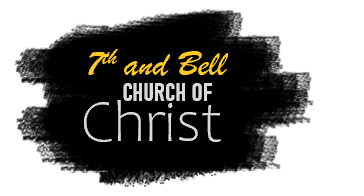
The Tree of the Knowledge of Good and Evil
The name of this tree is quite a mouthful, but this tree’s name is largely all the details we have concerning it. Now, many artful depictions of this tree have been made through the centuries, and it is usually portrayed as some mutant apple tree, but it was not an apple tree, it was its own type of tree, one that was uniquely recognizable. In fact, Eve did not call it by the name we know it by, she only identified it as “the tree which is in the midst of the garden” (Genesis 3:3). But the purpose of God in planting such a tree has been a subject of much interest, but often the wrong conclusions are formed, and this affects a proper understanding that we could have about God, evil, and free will. So, this article is intended to challenge the way that mankind often thinks concerning the tree of the knowledge of good and evil. The thoughts and conclusion made here may be right or wrong; nevertheless, it will provoke further thought and study into this matter.
For the most part, it is commonly believed that the tree of the knowledge of good and evil was planted in the garden of Eden by God to provide a means by which man could have free will and choose either to do what is right or wrong. I disagree. What are your thoughts on free will? My idea of it may be incorrect, but I’d say that free will was not given to us so that we can choose either good or evil; free will was given to us so that we can choose to do good. God didn’t say: Here is the tree of the knowledge of good and evil, you may choose to refrain from it and do good or you may choose to eat of it and do evil. No, God didn’t say that at all. Give careful consideration to what God said: “Of every tree of the garden you may freely eat; but of the tree of the knowledge of good and evil you shall not eat, for in the day that you eat of it you shall surely die.” God never gave man a choice to eat, He straightforwardly said “of the tree of the knowledge of good and evil you shall not eat.” That doesn’t sound like a choice to me. But notice that God does give man free will, just not in the way that some people think of free will. Look again at how God said, “Of every tree of the garden you may freely eat”. This is the true reality of what free will is all about. It has nothing to do with the freedom to choose between good and evil, but it has everything to do with freely choosing all kinds of good. There are so many good things that we can do of our own free will that align with the image of God. Is this not the point Paul made to the Galatians when he described the fruit of the Spirit? “Love, joy, peace, longsuffering, kindness, goodness, faithfulness, gentleness, self-control. Against such there is no law.” (Galatians 5:22-23). So, we have so many good things to choose to do and there is no law against them (to me, the statement “no law against them” is the true biblical definition of free will). But on the contrary, with the works of the flesh, there is law against those things, we have not the choice or the free will to choose evil, God has granted us free will to do a world of good. So then, choosing to do evil is an abuse of our free will. It is an abuse of the ability that God gave us to choose good things. It is an insult to being made in the image of God to misuse our power to do good for doing evil instead.
The presence of the tree is not for the purpose that it would cause man to sin, for man could have sinned in any number of other ways (such as if he shirked his duty to “keep and tend the garden”, or if the woman evaded her role as a helpmeet, or if the man chose not to “hold fast to his wife”). The presence of the tree was not to cause sin but to stand as a testament to the love and trust that man must place in God. Consider it, just as the tree of life demonstrates man’s eternal fellowship with God, the tree of the knowledge of good and evil demonstrates the love that man has for his creator. Jesus said, “if you love Me, keep My commandments” (John 14:15), and again, “If you keep My commandments, you will abide in My love, just as I have kept My Father’s commandments and abide in His love.” (John 15:10). Notice that love for our God is demonstrated by walking in his commandments, thus not knowing evil. Without laws, such as “of the tree of the knowledge of good and evil you shall not eat”, could our love ever be acted upon, or would love for God even exist?
Likewise, without law from God, would there really be trust or faith in God? Recall that God explained the reason for the commandment to not eat of the tree of the knowledge of good and evil: “for in the day that you eat of it you shall surely die.” This allows man the position to place his trust in God’s word, and to obey the command because they have faith in their creator to do good to them. God’s instruction for man to abstain from the tree of the knowledge of good and evil is for the same purpose as any other command He has given man through the years. See, for example, the purpose of the law of Moses: “And the LORD commanded us to observe all these statutes, to fear the LORD our God, for our good always, that He might preserve us alive, as it is this day.” (Deuteronomy 6:24). To not partake of the tree was for their own good, to preserve man’s life; even today, to follow the law of Christ means life and peace for us, it is for our good always, to preserve us alive. But if we were not given commandments, what works could we do that would demonstrate our trust in God (James 2:17)? So then, the tree of the knowledge of good and evil was not placed before man to allow him the choice to do evil, it was placed before man to afford him the proper means by which he could daily demonstrate his faith in God’s word and the love he has for his Creator.
Article by Tanner Campbell
